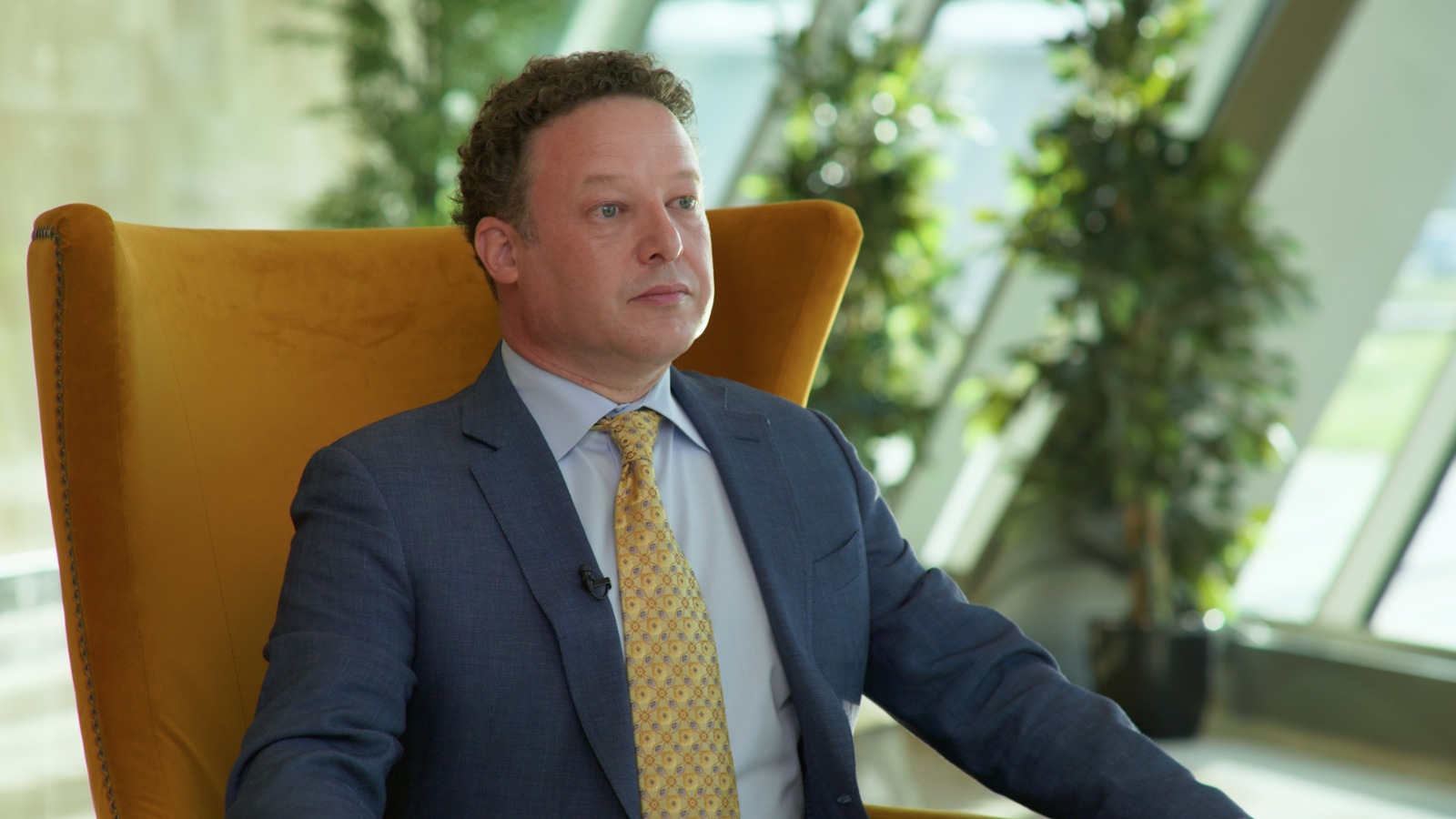ASTANA — The Astana Times YouTube channel interviewed Darren Spinck, a research fellow at the United Kingdom (UK) – based Henry Jackson Society, a think tank named after the late United States (US) Senator Henry M. Jackson, who served from 1953 to 1983, known for his strong national security policies. The interview took place on the sidelines of the Astana Think Tank Forum last October.

Darren Spinck. Photo credit: The Astana Times
Spinck emphasized that it is in the interests of the US and the UK to build stronger relations with Kazakhstan, as this can contribute to “economic deterrence.” He added that Kazakhstan’s commitment to neutrality is also crucial.
We began our discussion by exploring two key factors that have contributed to the rise of multipolarity and the decline of a US-led unipolar world. According to Spinck, this shift has largely been driven by the “weaponization of the US dollar” and the increasing use of sanctions.
“Washington has increased its use of sanctions by an astounding 933% over the past two decades. The primary issue is that overusing sanctions has led many middle-power economies to distance themselves from the U.S. out of fear of getting caught in the sanctions web, pushing them into closer economic ties with Beijing,” he said.

The Astana Times journalist Aida Haidar and Darren Spinck during an interview.Photo credit: The Astana Times
According to Spinck, the overuse of sanctions has proven ineffective in deterring actions like war in Ukraine.
“The Biden administration implemented a sanctions regime, but it failed to stop Russia’s actions in Ukraine. Instead, it led to broad, sector-wide sanctions and secondary sanctions that affected neighboring countries,” he explained.
“This forced these countries to reconsider their commercial ties with the U.S. and drew them closer to Beijing and Moscow. I think a much more effective approach would have been diplomacy, dialogue, and increased commercial ties,” he added.
Spinck emphasized that economic deterrence could be strengthened by enhancing commercial ties in Central Asia and the Indo-Pacific.
“You encourage these countries to build closer ties with the United States, rather than driving them further away,” he said.
Kazakhstan as a supply chain anchor
Spinck highlighted Kazakhstan’s unique position, emphasizing that its geography and vast resources—including energy, rare earth elements, and critical minerals—make it a potential anchor in global supply chains.
By investing further in Kazakhstan’s transportation corridors, energy sector, and critical minerals industry, Spink suggested that the U.S. and U.K. could reduce their strategic vulnerability to competitors, such as China, which has imposed export controls in response to US restrictions on semiconductors and semiconductor production equipment.
“China placed restrictions on exporting three key rare earth elements—germanium, gallium, and graphite—which puts U.S. technology manufacturing at significant risk. These materials are essential for everything from military components to everyday devices—your car, phone, computer—all of them rely on rare earth elements. Expanding rare earth supplies through collaborative efforts with researchers in Kazakhstan and Central Asia would allow the U.S. and U.K. to mitigate the impact of such restrictions by strategic competitors,” he explained.
Middle Corridor
Spink emphasized the importance of developing transport infrastructure and highlighted that the West now fully recognizes the potential of the Middle Corridor (Trans-Caspian International Transport Route). He noted that realizing this potential will require commitment from the next U.S. administration, whether led by Donald Trump or Kamala Harris. (The interview was conducted before the announcement of the presidential election results in the U.S.).
“The Middle Corridor is actually 2,000 kilometers shorter than the existing Northern Corridor and is free from the risk of sanctions. This makes it not only a quicker route but also insulates companies in the transportation and manufacturing sectors from potential sanctions from Russia or China in the future. So, the Middle Corridor is likely the best solution moving forward for exporting rare earth elements, critical minerals, energy, and manufactured goods for trade across Europe and Asia,” he explained.
Neutrality as a Path Forward
Spink emphasized that Kazakhstan’s foreign policy and relationships with neighboring countries should remain balanced.
“I believe Kazakhstan has the potential to elevate its profile internationally by acting as an intermediary in diplomatic efforts, whether it’s helping find political solutions between Russia and Ukraine or fostering peace between Azerbaijan and Armenia. Kazakhstan can demonstrate its ability to act as a neutral party, with interests that span both East and West,” he said.
He further pointed out that countries like the US and the UK, when engaging with Kazakhstan—which shares the longest continuous border with Russia and is also a neighbor to China—should consider their relationships with Kazakhstan and Central Asia as a whole through a pragmatic lens.
In his opinion, it is in Kazakhstan’s national interest to stay neutral and avoid taking sides, which can best be achieved by maintaining strong commercial ties with its neighbors, Russia and China, as well as with the West.
Spink also highlighted that Kazakhstan’s relationships with Western countries should encompass more than just foreign direct investment and trade.
“I hope Kazakhstan continues to send students to the UK and the US—not only to learn English and appreciate the countries for their investment potential but also to experience their cultural offerings. I believe there are numerous cultural and soft power initiatives that Washington and London can collaboratively enhance to deepen cultural relations with Kazakhstan,” he concluded.
Full interview is on The Astana Times Youtube channel.
